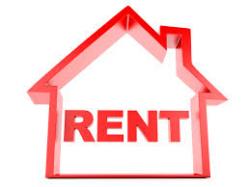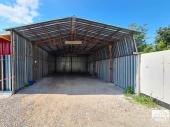|
| 5 Rules For Renting A Home Overseas |
|
|
 #1: Think twice before renting new construction or just-completed renovation.You donít want to be the first person living in a place. It makes you a guinea pig, left to work out the kinks.
#1: Think twice before renting new construction or just-completed renovation.You donít want to be the first person living in a place. It makes you a guinea pig, left to work out the kinks.
This was our frustrating experience in the second home we rented in Panama City, in Casco Viejo. The owner hadnít done a punch list after the extensive renovation heíd undertaken just prior to our moving in. In effect, we did. We suffered through a long list of things that didnít work and that hadnít been properly addressed (including a roof that leaked in six places, no hot water in the guest bathroom, and bedroom doors that couldnít be closed because they bumped into the ceiling fans).
We discovered too late that the long-distance owner didnít seem to care whether anything worked or not, leaving us to deal with his incompetent and unresponsive property manager. Thus our third (and current) rental.
#2: Investigate the reputation of the management company responsible for the property.
Speak with current clients of the group managing the rental youíre considering moving into. If the feedback is largely negative, find another place to rent.
Same goes for building management in the case of a high-rise apartment building.
In Panama, most new buildings come with loads of amenities (swimming pools, grill areas, childrenís playrooms, basketball courts, tennis courts, spas, gyms, even putt-putt golf). However, if the building administration isnít maintaining the amenities, and you therefore canít use them, whatís the point of paying for them (as you will, as market rents take into account a buildingís amenities even if they arenít usable)?
#3: Understand what documents you will need to be able to rent.
Depending on where youíre moving, the answer could be none. On the other hand, in some markets (France, for example), youíre going to have to prepare a dossier of paperwork (including, for example, recent bank statements, pay stubs, reference letters, even, sometimes, letters of guaranty) to submit for approval before youíll be able to sign a lease.
In Panama, you generally donít need any documentation to rent. You find a place, sign a lease, pay your deposit, and move in.
In Paris, on the other hand, again, youíll need a folder full of paperworkóunless you rent on the black market. Renting long-term on the black market can be more expensive, but it overcomes the dossier hurdle, which, depending on your situation, you may not be able to meet.
#4: Understand what deposit you will be required to make.
The general rule is that youíll have to pay the first monthís rent plus a deposit equal to one monthís rent. Sometimes, the deposit can be one-and-a-half or two monthsí rent.
Whatever the deposit, donít expect to see it again. Friends in Paris joke that the best way to think about any security deposit you make in that market is to amortize it over the lifetime of your rental. In other words, consider it part of the rent. (Iím speaking about long-term rentals, not short-term tourist stays.)
In Panama, if your landlord is following the law, your deposit will be posted with MIVI (Panamaís department of housing). MIVI holds the funds and then releases them at the end of the rental term. If something is to be deducted for damages, the landlord informs MIVI, and the renter (you) is given a chance to sign off on the amount to be withheld for repairs.
Unfortunately, not all landlords do this (many foreign landlords arenít even aware theyíre supposed to do this). This means your deposit is at risk.
In the case of our first rental in Panama City, an apartment in a high rise, the landlord returned our deposit within a couple of weeks of our moving out. He made no deductions, and we got our deposit back in full.
In the case of the house we rented in Casco Viejo, the property manager refused to return our deposit, citing ďdamages.Ē However, he refused to tell us what the damages were (we werenít aware of any) or to itemize the costs for repairs. He kept the full amount. As he hadnít posted the amount with MIVI but had kept it himself, we were out of luck.
#5: Use an attorney.
You know to use an attorney when you buy property overseas, but you should also use one when signing a rental agreement in another country. Unless you are very familiar with tenantsí rights and the particulars of rental contracts in the country where youíre renting, it pays to have someone review the documents before you sign.
Plus, the rental agreement will be in the language of the country where youíre renting. Unless your Spanish, French, Portuguese, etc., is really strong, you want someone fluent in the language and familiar with the local laws related to rentals to review the document for you.
A good attorney will also inform you of any negotiable clausesóthat is, any opportunities for you to adjust the terms of the agreement to your benefit.
Source: liveandinvestoverseas.com |
| Monday, Aug 28, 2017 |
|
|
|
|
| » RENTALS |

|
|
|
| Other |
€ 115 |
|
| Location: |
Veliko Tarnovo |
|
|

|